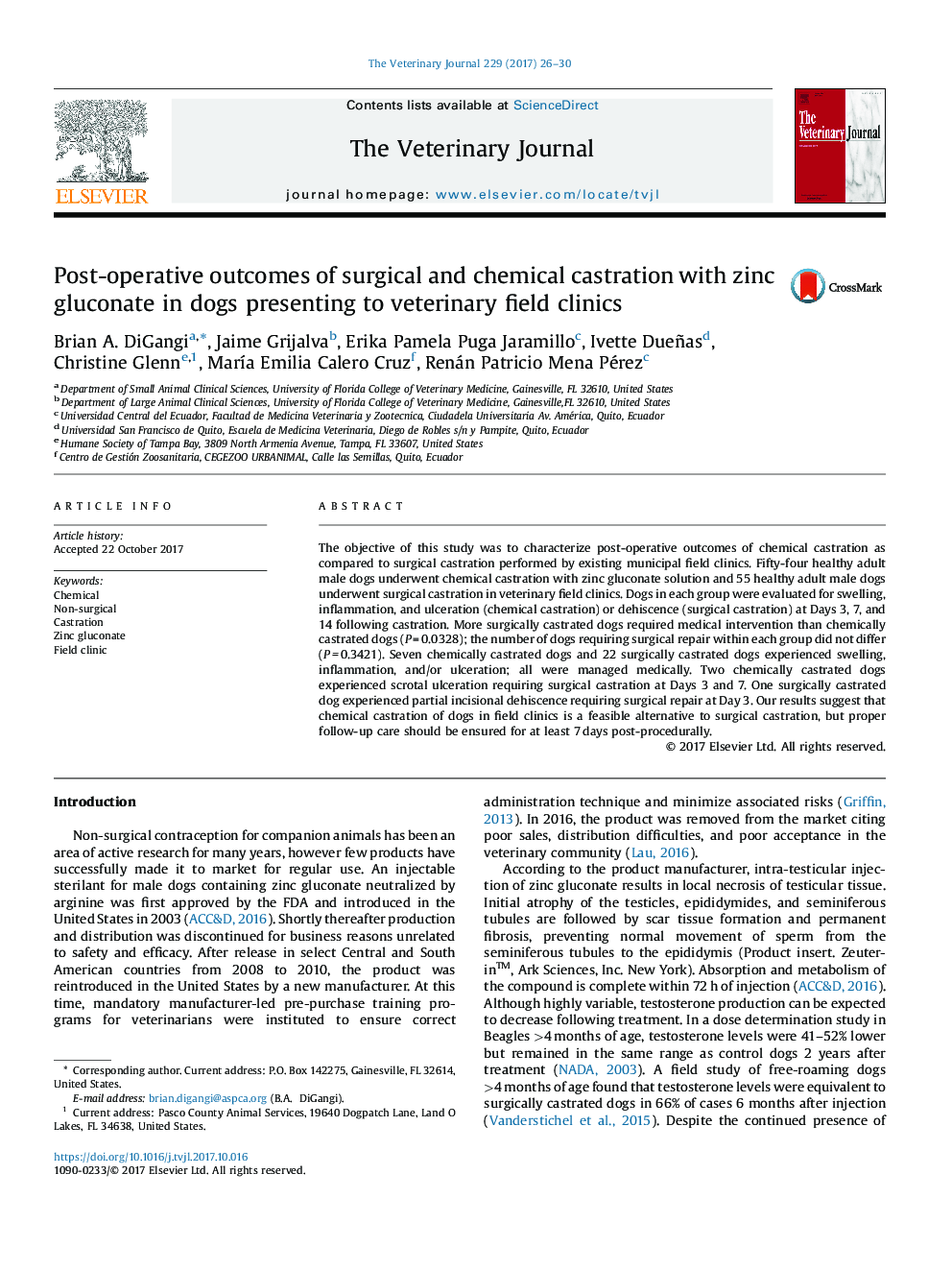| Article ID | Journal | Published Year | Pages | File Type |
|---|---|---|---|---|
| 8505033 | The Veterinary Journal | 2017 | 5 Pages |
Abstract
The objective of this study was to characterize post-operative outcomes of chemical castration as compared to surgical castration performed by existing municipal field clinics. Fifty-four healthy adult male dogs underwent chemical castration with zinc gluconate solution and 55 healthy adult male dogs underwent surgical castration in veterinary field clinics. Dogs in each group were evaluated for swelling, inflammation, and ulceration (chemical castration) or dehiscence (surgical castration) at Days 3, 7, and 14 following castration. More surgically castrated dogs required medical intervention than chemically castrated dogs (PÂ =Â 0.0328); the number of dogs requiring surgical repair within each group did not differ (PÂ =Â 0.3421). Seven chemically castrated dogs and 22 surgically castrated dogs experienced swelling, inflammation, and/or ulceration; all were managed medically. Two chemically castrated dogs experienced scrotal ulceration requiring surgical castration at Days 3 and 7. One surgically castrated dog experienced partial incisional dehiscence requiring surgical repair at Day 3. Our results suggest that chemical castration of dogs in field clinics is a feasible alternative to surgical castration, but proper follow-up care should be ensured for at least 7Â days post-procedurally.
Related Topics
Life Sciences
Agricultural and Biological Sciences
Animal Science and Zoology
Authors
Brian A. DiGangi, Jaime Grijalva, Erika Pamela Puga Jaramillo, Ivette Dueñas, Christine Glenn, MarÃa Emilia Calero Cruz, Renán Patricio Mena Pérez,
